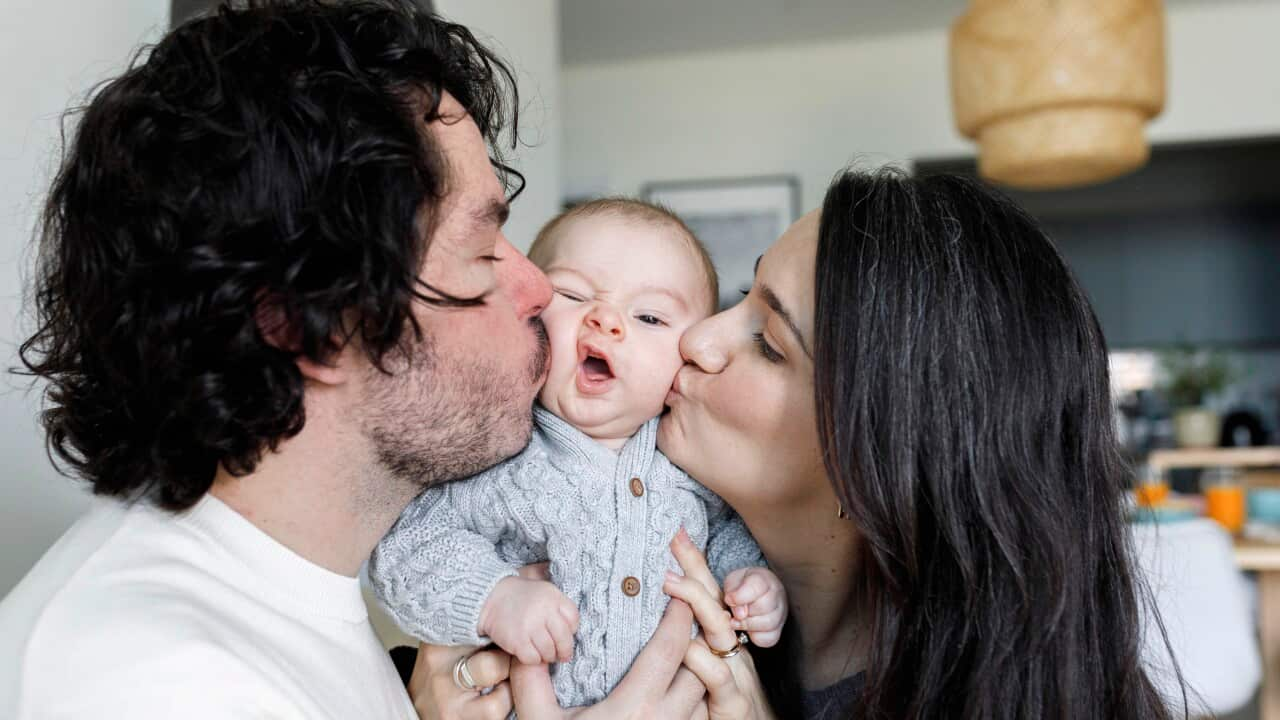Key Points
- Professor Michael Kidd says the immunity from the past infection only lasts four weeks
- Antiviral pills significantly reduce hospitalisation risk in people with COVID-19
- Early research suggests the risk of long COVID increases with the number of reinfections
New South Wales resident Linzi Ibrahim is among thousands of Australians who caught coronavirus for the second or third time in the current Omicron wave.
Ms Ibrahim, a mother of two and an asthma patient, says her second encounter with novel coronavirus was "a lot worse."
"This second infection has been worse for my breathing which is worrying," Ms Ibrahim tells SBS.
She says the virus has affected her both physically and mentally this time.
It's been a lot harder to find the energy to do basic things like cooking and cleaning. I haven't had the energy to do any work, exercise or play with my kids
Ms Ibrahim advises everyone to avoid infections at all costs.
Why are reinfections occurring?
Experts and health authorities say Omicron's new subvariants BA.5 and BA.4 escape immunity from previous infections and vaccinations.
It means those infected with a previous Delta variant or an Omicron subvariant in the past can still get reinfected with a new subvariant.
Australia's Deputy Chief Medical Officer, Professor Michael Kidd, says the immunity from the past infection only lasts four weeks.
In fact, states and territories have reduced the reinfection period from 12 weeks to 28 days on the advice of the Australian Health Protection Principal Committee.
It means those testing positive after 28 days from the last day of their isolation period are now counted as new cases.
Is COVID reinfection more severe than the previous infection?
Professor Kidd says these new subvariants are "more transmissible", but researchers are still learning about their impact.
"What we don't know is whether these new variants cause more severe disease than the previous variants of omicron or the previous alpha or delta," he says.
We must keep in mind reinfection can lead to more serious illness in people aged 70 and over, or those with a chronic health condition, disability or are immunocompromised
Experts say the severity of reinfection depends on various factors, including age, viral load, vaccination status, immunocompromised status, and the duration between the two infections.
A US , which is yet to be peer-reviewed, shows the risk of long COVID increases with the number of reinfections.
"We show that compared to people with first infection, reinfection contributes additional risks of all-cause mortality, hospitalisation, and adverse health outcomes in the pulmonary and several extrapulmonary organ systems (cardiovascular disorders, coagulation and hematologic disorders, diabetes, fatigue, gastrointestinal disorders, kidney disorders, mental health disorders, musculoskeletal disorders, and neurologic disorders)."
How can we prevent reinfection?
Professor Kidd strongly urges residents to wear face masks before leaving home and in settings where physical distancing is difficult.
"That includes going to shops, supermarkets, entering an elevator and using public transport," says Professor Kidd.
"At the same time, please be up to date with your vaccination, including booster doses."
The Queensland government says the risks of reinfection and hospitalisation are lower in fully vaccinated people with previous infection. The risk is further reduced with each additional dose of vaccine, including boosters.
Professor Kidd says physical distancing, hand hygiene, and cough etiquette are "just as important as they have been at other times of the pandemic."

Health authorities advise residents to do a RAT or PCR test as soon as COVID-19 symptoms occur. Source: Getty Images/Tang Ming Tung
What if you are reinfected?
Health authorities advise residents to do a PCR test if their RAT result is negative and they are still symptomatic.
Ms Ibrahim says her RAT returned negative results four times before she visited a doctor with worsened symptoms. She took a PCR test and was found COVID positive.
She asks residents to check their eligibility for antiviral pills which improved her breathing.
Professor Kidd calls these oral COVID-19 treatments a "game changer, " lowering the severity, hospitalisations and death risks substantially.
The pills work best when taken within five days of testing positive for COVID-19.
SBS is committed to providing all COVID-19 updates to Australia’s multicultural and multilingual communities. Stay safe and stay informed by visiting regularly the .







